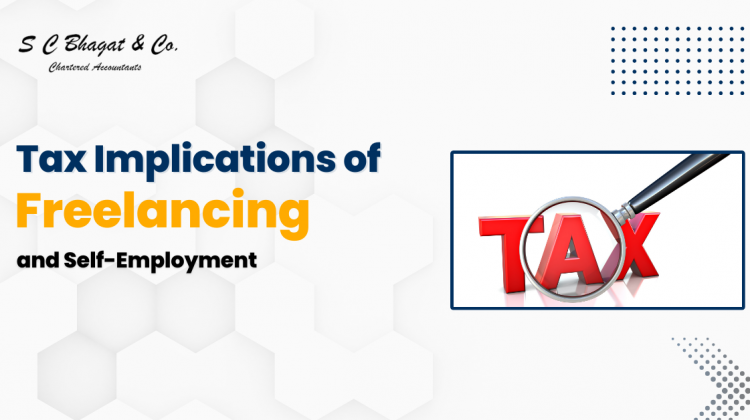Introduction
In today’s dynamic job market, many individuals are turning to freelancing and self-employment as viable career options. While these avenues offer flexibility and autonomy, they also come with unique tax implications that freelancers and self-employed individuals need to be aware of. In this blog, we will explore the various tax considerations associated with freelancing and self-employment.
Understanding Freelancing and Self-Employment
Freelancing refers to working independently on a contract basis for multiple clients, while self-employment involves running your own business or providing services as an independent contractor. In both cases, individuals are responsible for managing their own taxes, unlike traditional employees whose taxes are typically withheld by their employers.
Income Tax
Freelancers and self-employed individuals are required to report all income earned from their work on their tax returns. This includes income from client payments, as well as any other sources such as royalties, interest, or dividends. It’s essential to keep accurate records of all income received throughout the year to ensure compliance with tax regulations.
Self-Employment Tax
One significant difference for self-employed individuals is the requirement to pay self-employment tax, which covers Social Security and Medicare taxes. Unlike traditional employees who split these taxes with their employers, self-employed individuals are responsible for paying the full amount. This tax is calculated based on net earnings from self-employment.
Estimated Taxes
Since freelancers and self-employed individuals do not have taxes withheld from their income, they are required to make estimated tax payments throughout the year. These payments are typically made quarterly and are based on projected income and self-employment tax liability. Failing to make estimated tax payments can result in penalties and interest charges.
Deductions and Expenses
One advantage of freelancing and self-employment is the ability to deduct business-related expenses from taxable income. This includes expenses such as office supplies, equipment, travel, and professional services. Keeping detailed records of these expenses is crucial for accurately claiming deductions and minimizing tax liability.
Home Office Deduction
Freelancers and self-employed individuals who work from home may be eligible to claim a home office deduction. This deduction allows them to deduct a portion of their housing expenses, such as rent, mortgage interest, utilities, and property taxes, based on the percentage of their home used for business purposes.
Retirement Savings
Self-employed individuals have the responsibility of funding their own retirement savings since they do not have access to employer-sponsored retirement plans. Options such as SEP-IRAs, Solo 401(k)s, and SIMPLE IRAs allow freelancers and self-employed individuals to save for retirement while also reducing their taxable income.
Tax Planning and Compliance
Navigating the tax landscape as a freelancer or self-employed individual can be complex, so it’s essential to engage in proactive tax planning. Working with a qualified tax professional can help maximize deductions, minimize tax liability, and ensure compliance with tax laws and regulations.
Conclusion
Freelancing and self-employment offer exciting opportunities for individuals to pursue their passions and achieve financial independence. However, it’s crucial to understand the tax implications associated with these career paths to avoid surprises come tax time. By staying informed, keeping accurate records, and seeking professional guidance when needed, freelancers and self-employed individuals can effectively manage their tax obligations and focus on growing their businesses.
FAQs
- Do I need to pay taxes as a freelancer?
Yes, freelancers are responsible for reporting and paying taxes on their income, including self-employment tax. - What is self-employment tax, and how is it calculated?
Self-employment tax covers Social Security and Medicare taxes for self-employed individuals and is calculated based on net earnings from self-employment. - Can I deduct expenses related to my freelance work?
Yes, freelancers can deduct business-related expenses from their taxable income, such as office supplies, equipment, and professional services. - What is the home office deduction, and am I eligible for it?
The home office deduction allows self-employed individuals to deduct a portion of their housing expenses if they use their home for business purposes. - How can I save for retirement as a freelancer or self-employed individual?
Self-employed individuals can save for retirement through options such as SEP-IRAs, Solo 401(k)s, and SIMPLE IRAs, which offer tax advantages while helping to build retirement savings.

